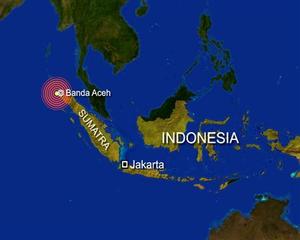The Mediterranean will be one of the regions of the world that will suffer most from climate change as rising temperatures and water shortages cripple agriculture and tourism, a seminar in Athens heard yesterday.
If warnings about the environmental and health repercussions of global warming have failed to convince governments to take action, threats of a serious blow to key industries may be taken more seriously, experts told a seminar on the economic impact of climate change organized by the British Embassy in association with Kathimerini and Skai.
Almost half a million people fled coastal villages in Vietnam and the Philippines on Friday as two separate typhoons roared towards the southeast Asian countries.
Typhoon Mitag, with sustained winds of 175 kilometres per hour, is expected to make landfall on the small Philippines island province of Catanduanes on Saturday, the same day Typhoon Hagibis is supposed to strike the Vietnamese coast.
Thirty-one people, including four children, on a bus that was engulfed by a massive landslide in central China early this week are almost certainly dead, a local official said Friday.
The passengers were on the bus in mountainous Badong county, Hubei province, on Tuesday when the landslide occurred and are feared to have all died, Xinhua news agency said, citing local officials and the bus company.
DHAKA - US marines arrived to bolster relief efforts in Bangladesh on Friday as concerns mounted for survivors of killer Cyclone Sidr which devastated the disaster-prone nation more than a week ago.
Navy personnel from the USS Kearsarge, anchored close to the southern Bangladesh coast, has begun medical evacuations and transportation of water to some of the worst-affected coastal areas, a US embassy spokesman said.

|
| ©REUTERS/Graphics
|
| A map shows the location of an earthquake of magnitude 6.0 which struck off the coast of Indonesia's Sumatra island, near Aceh, the country's meteorological agency said on Friday morning.
|
An earthquake of magnitude 6.0 struck off the coast of Indonesia's Sumatra island, near Aceh, the country's meteorological agency said on Friday, but officials said there was no damage to nearby energy facilities and a tsunami warning was not issued.
A report last week said climate change will put half the world's countries at risk of conflict or serious political instability.
International Alert, a London-based conflict resolution group, identified 46 countries -- home to 2.7 billion people -- where it said the effects of climate change would create a high risk of violent conflict. It identified another 56 states where there was a risk of political instability.
Trawling through history and working out correlative patterns, the team found that temperature declines were followed by wars, famines and population reductions.
A strong 6.3-magnitude earthquake struck offshore northern Chile Tuesday, the US Geological Survey said, just a week after the region was rocked by a major 7.7-magnitude earthquake which killed two, injured 15,000 and damaged an estimated 4,000 structures.
The single, spindly seven foot-tall cornstalk spiring up from the planter box outside a prominent downtown hotel here was filling out with new "elotes" (sweet corn) to the admiration of passer-bys, some of whom even paused to pat the swelling ears with affection. Down the centuries most of the population of this megalopolis migrated here from the countryside at one time or another over the course of the past 500 years and inside every "Chilango" (Mexico City resident) lurks an inner campesino.
But the solitary stalk, sewn by an urban coalition of farmers and ecologists under the banner of "No Hay Pais Sin Maiz" ("There Is No Country Without Corn") in planter boxes outside the downtown hotels, museums, government palaces and other historical monuments can just as easily be seen as a signifier for the fragile state of survival of Mexican corn.
BBCWed, 21 Nov 2007 20:57 UTC

|
| ©PA
|
| The jellyfish invasion was spread over 10 miles in the Irish Sea
|
Tropical storm Mitag bore down on the eastern Philippines on Wednesday, flooding large areas of the region and forcing the government to order large-scale evacuations, days after another killed 10 people in the country's south.
Mitag was gaining strength with winds of up to 85 kilometres (53 miles) an hour and was on course to hit the Bicol peninsula southeast of Manila on Friday, weather forecasters said.
It was tracked 1,020 kilometres northeast of Legaspi, Bicol's largest city, at 11:00am (0300 GMT), and forecast to reach typhoon strength of at least 120 kilometres an hour when its eye passes close to the island of Catanduanes, to Legaspi's northeast.